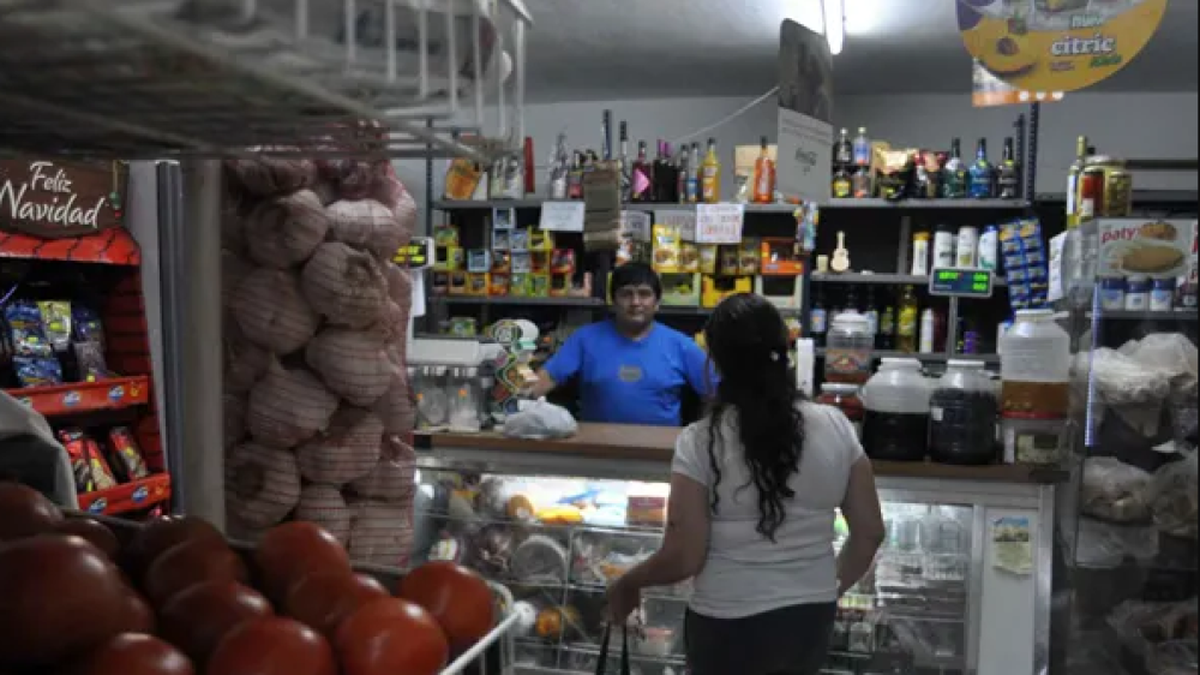The loss of purchasing power exceeded all levels of daily restrictions and distanced the consumer from the most basic need: purchase food and beverages, and this is reflected in stores.
Minimizing purchases and carrying credit: a growing dynamic in neighborhoods
According to Fernando Savorevice president of the FABA“People are minimizing their purchases” and are emphasizing changes in payment methods: “It was not common to pay, for example, $6,000 with a credit card, but now it is done,” he says.
He also mentions that a scene that is repeated more and more frequently is that of customers asking the cashier, “how much is it?” for each product that passes through the reader. “Many people leave some food in the box because they see that it is overcooked.says Savore. The problem is what they leave behind: They do not rule out, as one might think, purchases of secondary necessities.but first class, such as tomato puree, milk or fruits and vegetables.
In this sense, Savore indicates that “end of the month “It arrives on the fifteenth” and not on the thirtieth, as it should. And it is that, at the beginning of the month, when the clients received their salary, “they take the brand that they usually buy,” but in the last fortnight They only buy the cheapest one.
P21 – Supermarket (RE_opt.jpeg
Grocery stores are local businesses that are often visited by the sectors of society hardest hit by the crisis.
This is also generated by the change in the composition of the family budgettoday co-opted by the tariff increase of the public services, transport and increase in other services, such as schoolthe prepaid or the same credit card. “There is less left to buy food and live“, says Savore.
For this reason, the member of the Federation of Grocers that The credit is reinstated as a form of debt in local businesses.
The crisis spreads to other parts of the country
This reality extends to other provinces in the country, which are responsible for reflecting it through figures that raise alarm bells.
For example, the province of Cordova It exhibits a dynamic of consumption of essential goods, characterized by increasingly limited purchases, lack of food basic in the family diet and increase in credit in neighborhood shops.
According to the Center for Grocers and Retail Traders Cordobans, the 57.7% of households could not access all of the food in the Basic Food Basket (CBA).
In turn, of those who were able to do so, only the 25.3% He did it with his own resources and the 74.7% The remainder had to be assisted with some form of state aid.
Many Argentines skip meals and ask for credit
Meanwhile, a 47.7% from homes, due to lack of resources, had any member who skipped a meal (breakfast, lunch, snack or dinner).
However, this is perhaps the most relevant data, because it reestablishes a dynamic of indebtedness in the purchase of products: 89.4% of households financed food. Of this percentage, the following appears: on credit as the most used option, with a 44.7%and then follows the credit card for the 33.3% of respondents.
“Until last year, the ranking was led by credit cards, but plastic cards have already collapsed, people have used up their limit. Therefore, the fiado, which was limited only to unregistered workers, is now used by almost everyone,” he warns. German Romeroowner of the entity.
However, due to the drop in sales and the increase in fixed costs, the credit “It also has a roof” since not all businesses have the back to grant this possibility because “They are going through very critical hours”. “With credit too The number of bad debts and uncollectibles has increased significantly“, says the representative of the Grocers’ Centre.
When will recovery reach smaller businesses?
Although he understands that consumption had a slight rebound in July, he points out that it is still “at historic lows“and that full recovery will take”at least two years. At the moment, the closure of businesses is not the majority, but it is observed that labor is being dispensed with.increasingly”.
The data handled by the chamber that brings together warehouses, but also butchers, greengrocers and delicatessens, is 26.8% drop in sales in July year-on-year. The figure exceeds the national estimate.
In Córdoba, the lowest point of the fall in consumption was recorded in April with a 30.2%. This decline was narrowing, to the point that between June and July purchases grew by one and a half points, according to Romero.But we are still in a historical basement“, the merchant explains.
Economic crises generate common realities but different approaches. The way in which a local store or business can withstand the recession will depend on different variables, such as financial support.
Where there is no trust, promotions and discounts are offered
Gustavo Garropolipresident of the cooperative Friendshipsays that in his case they cannot sell on credit because “It would be suicide” due to the level of costs and lower sales.
Instead, the head of the cooperative records that more and more buyers finance food with cards and “Take advantage of all discount platforms”. “Mass consumption goods became expensive compared to the wages earned by workers“Eating hurts today,” laments Garrópoli.
This is what a large food company operating in the country highlights. Profitability, in pursuit of selling under promotions and discounts, is increasingly lowerHowever, it seems that there is no choice: according to the latest weekly survey by a renowned consumer consultancy, The week measured between July 29 and August 4 marked a variation of -21.3%.
Source: Ambito




